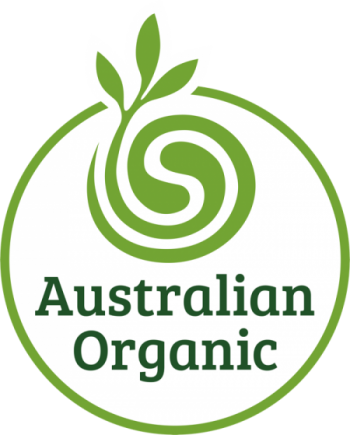A Queensland strawberry farmer, the head of Australia’s largest organic mushroom producer, and a Victorian dairy company were among 10 award winners at the 8th Australian Organic Industry Awards on Friday night. Held at Crowne Plaza Hunter Valley in Lovedale, NSW, peak industry body Australian Organic Limited (AOL) announced the night’s honourees, who collectively span an impressive and diverse range of certified organic products from fresh produce, dairy and meat, to pantry items and pharmaceutical ingredients.
Research released last week showing 8% of Australian people in a test population had traces of weed killer glyphosate in their urine has further brought to light the need for consumers to be aware of chemical use in the food supply chain. The research, conducted by the University of Queensland, comes after earlier reports in the media highlighting a number of concerns surrounding the limited understanding of the amount of chemicals on produce.
The cropping industry, through the leadership of the Grains Research and Development Corporation (GRDC) have invested in CSIRO research towards climate resilience for grains.
Join AOL Technical Officer Josefine Pettersson as she talks to Professor Terry Rose, who brings a wealth of knowledge behind intercropping and other plant based solutions for potential sequestration. Professor Rose will discuss his research under the Soil CRC. Josefine will also speak with Dr Maartje Sevenster, lead researcher behind the Australian Grains Baseline and Mitigation Assessment report from the CSIRO. This is to be followed by a discussion with Fiona McCredie, Policy and Sustainability Manager for peak industry body GrainGrowers, about the Grains Sustainability Framework that has been devised to strengthen sustainability in the grain industry across the decade until 2030.
Australia's vibrant and growing organic industry and the broad-reaching benefits of choosing to buy organic are again being celebrated this September during Australian Organic Awareness Month.
Each year, as the season turns from winter to spring, the spotlight shines on the advantages of going organic, from the health-conscious buyer wanting to eliminate unnatural chemicals in their diet to supporting the market-leading work of producers in animal welfare and environmental stewardship.
In light of renewed biosecurity threats for Australian farms, AOL has placed an order for more visitor signs branded with the Bud logo. The signs will remind visitors to consider biosecurity threats before entering the property, as well as informing guests that they are entering a certified organic property or paddock where specific treatment and harvesting practices may be in place.
Australian Organic Limited’s inaugural Conference was held in Brisbane on 21-22 July, with approximately 200 delegates gathering to discuss change and transformation in the organics industry.
The two-day event covered a breadth of pressing topics in the organics space, including supply chains & traceability, climate change, sustainable packaging, soil & biologicals, consumer trends and much more.
Climate change represents numerous future difficulties for the agricultural sector with extreme weather events already costing Australian farms on average $30,000 annually and rising (ABARES). Organic agriculture presents a growing opportunity to mitigate climate change by reducing direct and indirect sources of greenhouse gas emissions through carbon sequestration. Increasing soil carbon is just one of the many ways farmers can mitigate the effects of climate change. In this webinar, we'll delve further into this issue from a livestock perspective.
Wine grape production faces many challenges. Climatic extremes like heat and declining water resources are already putting pressure on the industry. Higher temperatures increase sugar levels and in-turn alcohol percentages in wine.
As part of the interactive panel discussion, we will be joined by three experts in their field to help you prepare for climate change and learn from their triumphs and mistakes within the carbon market and industry.
Organic agriculture presents a growing opportunity to mitigate climate change by reducing direct and indirect sources of greenhouse gas emissions through carbon sequestration. Increasing carbon in soil is just one of the many ways farmers can mitigate the effects of climate change.
Join us as we introduce the current Australian climate change situation, forecast and climate tools to equip producers with the means for efficient risk management.
